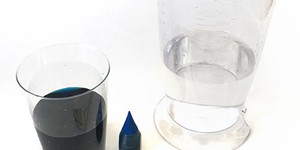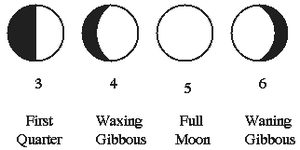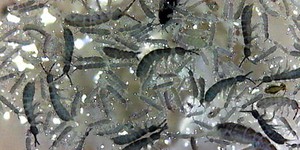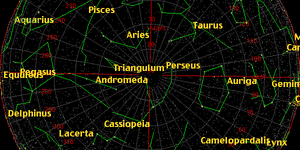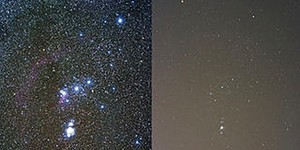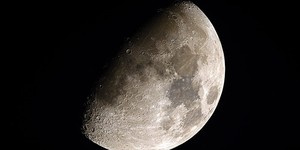Observe Something in Nature Science Projects (16 results)
Go outside into the natural world and carefully observe one aspect to discover the answer to a science question. Take a measurement of stars or the moon, or look underneath your feet to investigate moss or soil bugs.
|
Have you ever heard someone say, "that plant is thirsty" or "give that plant a drink of water"? We know that plants, and even bouquets of cut flowers, need water to survive, but have you ever thought about how the water moves within the plant? In this science project, you will use colored water and carnations to figure out where the water goes.
Read more
Featured
Have you heard that garlic powder is supposed to inhibit the growth of bacteria? Which do you think would make a better disinfectant: a solution of garlic powder or a solution of bleach? This project shows you a straightforward way to compare the effectiveness of different disinfectants (or other antimicrobial agents), by measuring zones of inhibition on a culture plate.
Read more
Do you like your strawberry jelly with or without the seeds? Are you glad to have a seed-free watermelon, or do you enjoy spitting the seeds into the garden? You might not like to find seeds in your fruit, but fruit is the plant's way of dispersing seeds to make new plants. How many seeds can be dispersed for each type of fruit? As they say, in one end and out the other!
Read more
New
Remembering to take medicine at the right time can be hard, especially if you need to take multiple medications at different times of day. It might not be a big deal if you forget to take your daily multivitamin, but for some people, forgetting to take medication at the right time can be dangerous. What if you had a device that could not only set off an alarm at the right time, but also automatically dispense the right pills for you? In this project, you will build an automatic medicine…
Read more
Everyone loves looking at the full moon, but are these nights the best time to go stargazing? Can the moon interfere with certain astronomical observations?
Read more
Look out! When you walk on the grass, you are squishing millions of micro-invertebrates! Just kidding, these animals are too small to squish. Learn how to catch them by making a Berlese funnel in this fun project that will teach you about soil.
Read more
Have you ever heard the expression, "You can't judge a book by its cover"? What do you think that means? That a book with a very plain cover might have a very exciting and interesting story inside? Well, in this geology science project, you'll see if the same expression holds true for a rock, but not just any old rock, a special type of rock called a geode, which looks rather plain and ordinary on the outside, but inside can hold crystals and beautiful colors! You'll discover if the texture or…
Read more
New
Artificial intelligence (AI) programs can now generate photorealistic pictures of people who do not exist in the real world. How can you tell if a picture is of a real person or a fake, AI-generated person? What features of the picture do people use to decide whether the face is real or AI-generated? In this project, you will explore these questions as you ask volunteers to look at both real and AI-generated pictures of human faces.
Read more
Do you like to look up into the night sky? There are so many stars, it can be mind boggling! Some ancient people marked time by the changes in star patterns. We still use changes in constellation patterns to mark astronomical time. Do constellations change more in one hour, one day, one month, or one year?
Read more
Chlorophyll is a natural pigment found in green plants. It is the primary pigment that absorbs light energy from the sun for photosynthesis. This energy is then used by the plant to synthesize glucose from carbon dioxide and water. Chlorophyll in the leaves of plants can be extracted and separated using chromatography. A good source of chlorophyll for an extraction is a dark green leafy vegetable like spinach. Rub a fresh spinach leaf on the bottom of a strip of filter paper. You can get a…
Read more
This is a great project for someone interested in both stargazing and photography. Bright city lights and even the light of the full Moon obscure the dimmest stars, which can make identifying constellations more difficult. In this astronomy science project, you will calibrate a digital camera to measure the skyglow in different locations. This can be a great tool to comparing the quality of different star viewing locations.
Read more
One of my favorite things to do when I was a kid was to go outside and look at the stars. As an adult, I moved to a major city and the stars seemed to vanish from the sky. Where did they go?
Read more
Sometimes a full moon can be so bright, you can walk around in the dark without a flashlight. How much brighter is a full moon than the other phases of the moon? How is the brightness of the moon measured?
Read more
|
Explore Our Science Videos
How to Make Paper Circuits
Build a Gauss Rifle
Build a Simple Electric Motor


